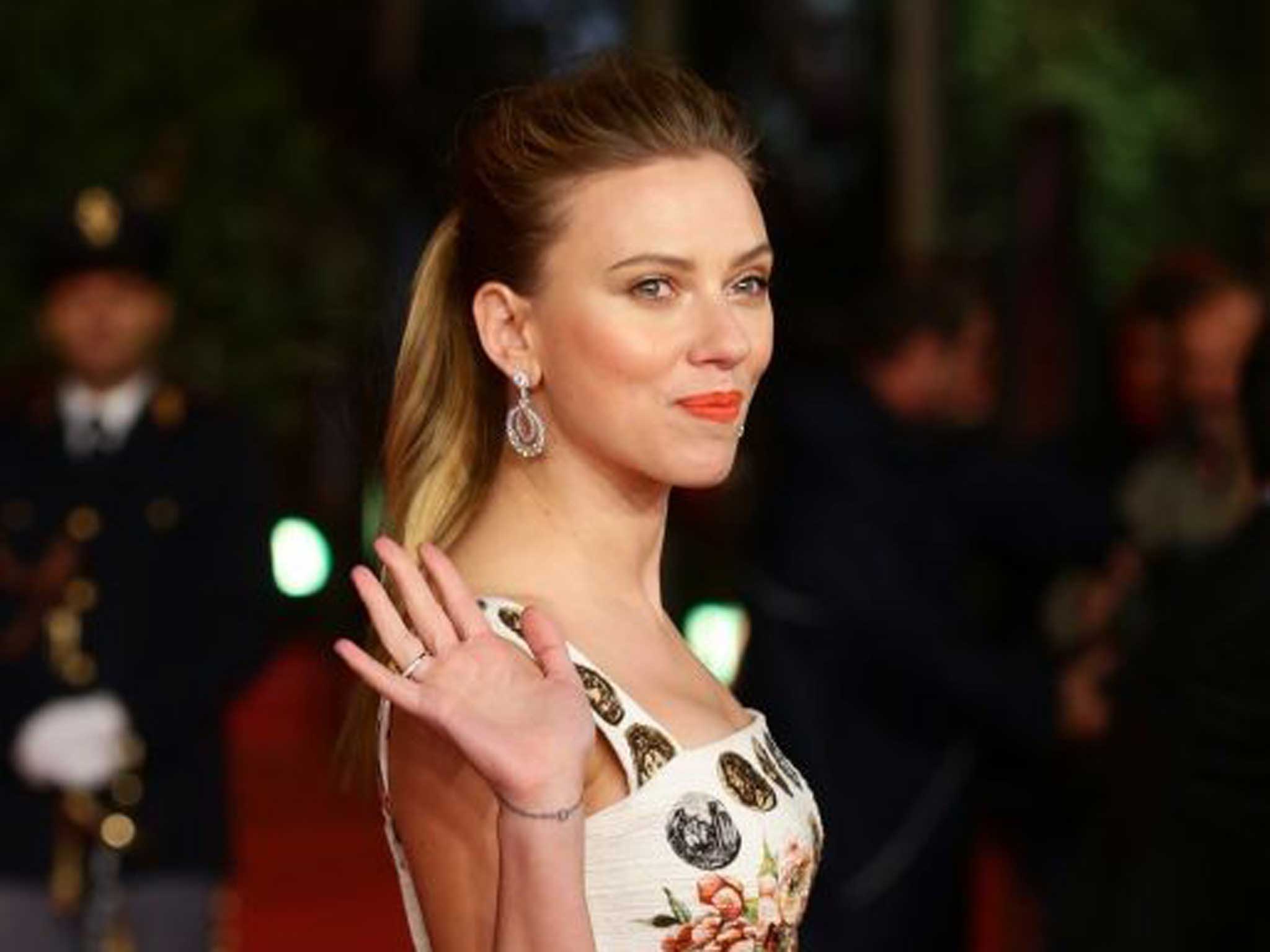And the Oscar winner could be... invisible: Scarlett Johansson causes a stir with her voice
Lost in Translation stars voice role in film ‘Her’ has highlighted an unsung art

Your support helps us to tell the story
From reproductive rights to climate change to Big Tech, The Independent is on the ground when the story is developing. Whether it's investigating the financials of Elon Musk's pro-Trump PAC or producing our latest documentary, 'The A Word', which shines a light on the American women fighting for reproductive rights, we know how important it is to parse out the facts from the messaging.
At such a critical moment in US history, we need reporters on the ground. Your donation allows us to keep sending journalists to speak to both sides of the story.
The Independent is trusted by Americans across the entire political spectrum. And unlike many other quality news outlets, we choose not to lock Americans out of our reporting and analysis with paywalls. We believe quality journalism should be available to everyone, paid for by those who can afford it.
Your support makes all the difference.She is one of Hollywood’s most recognisable faces, yet in her most talked-about role in years she is nowhere to be seen. Last weekend, Scarlett Johansson caused a stir at the Rome Film Festival by picking up the Best Actress Award for her voice work in Spike Jonze’s new film Her. Due for release in UK cinemas in January, the latest surreal fable from the Being John Malkovich director casts the 29-year-old actress as a Siri-like digital personal assistant who begins a relationship with “her” operator, Joaquin Phoenix’s dysfunctional writer.
When the film premiered at the New York Film Festival in October, it garnered strong reviews, The Hollywood Reporter calling it a “probing, inquisitive work of a very high order”. But now, as the awards season begins in earnest, the buzz is centring on its invisible star. Last week, industry bible Variety published a piece imploring Oscar voters to consider Johansson’s performance. “I’m urging [voters] to think outside the box,” says its author, awards editor Tim Gray.
“The idea of a man falling in love with this computerised voice system is pretty far-fetched but she makes it totally real – and also her character becomes deeper and more complex through it, which is so hard to convey without facial expressions. That’s real acting to me.” Indeed, the film’s producer Megan Ellison has tweeted confirmation that Johansson will be eligible for Academy recognition when voting begins at the end of December.
If Johansson does find herself in the frame, it will be the first time that an actor has been nominated for their pipes alone – and it will also throw the spotlight on a historically underappreciated discipline.
Over the years, after all, exceptional and nuanced voice performers have been key to the success of countless classic animations, from Tim Allen and Tom Hanks’s zinging Toy Story double act to jazz musicians Louis Prima and Phil Harris giving larger-than-life voice to musical mammals Baloo and King Louie in The Jungle Book.
Disembodied actors have made an indelible impression in the live-action arena too. In sci-fi, notably: think of James Earl Jones’s heavy-breathing Darth Vader or unknown Canadian actor’s Douglas Rain’s chillingly calm turn as murderous computer HAL in 2001: A Space Odyssey. But also less likely genres: last year’s highest international grossing comedy Ted was powered by the potty mouth of director Seth MacFarlane as the furry anti-hero.
“Invisible” parts are going to become increasingly prevalent as a result of technological advances. Chiefly, the development of performance capture technology has seen actors called on to physically inhabit animated roles that would have been conjured up by a computer in the past. The king of this school of acting is Britain’s Andy Serkis, who donned a Lycra suit with motion-tracking dots to bring to life the characters of Gollum in The Lord of the Rings trilogy and rebel chimp leader Caesar in Rise of the Planet of the Apes. The latter generated a spirited Oscars campaign, with ads headlined “The Time Is Now”, but to no avail.
However, Serkis might well be luckier next time, as Academy voters and punters alike become more open-minded about what constitutes a “performance”. The awards talk for Johansson also comes in a year in which Gravity stars Sandra Bullock and George Clooney are hotly tipped for roles in which their appearances are mostly restricted to their faces.
So, can a computerised Johansson score that nomination? Gray sincerely hopes so as “it would set a precedent at least,” he says.
And though some have argued for the Oscars to honour voice-over work with its own separate category, he would rather see the intangible slug it out alongside the flesh-and-blood.
“I think people in the industry have to learn to redefine things …. It’s been a really interesting year for film for a lot of reasons and there’s been a lot of pushing of boundaries.”
Join our commenting forum
Join thought-provoking conversations, follow other Independent readers and see their replies
Comments